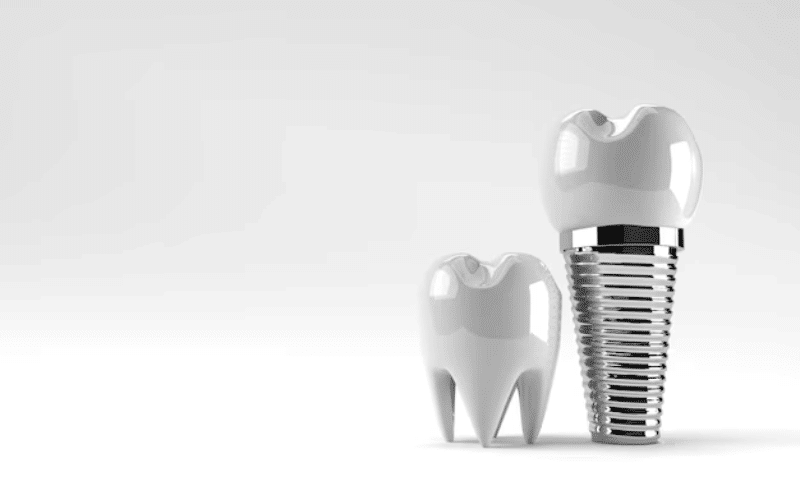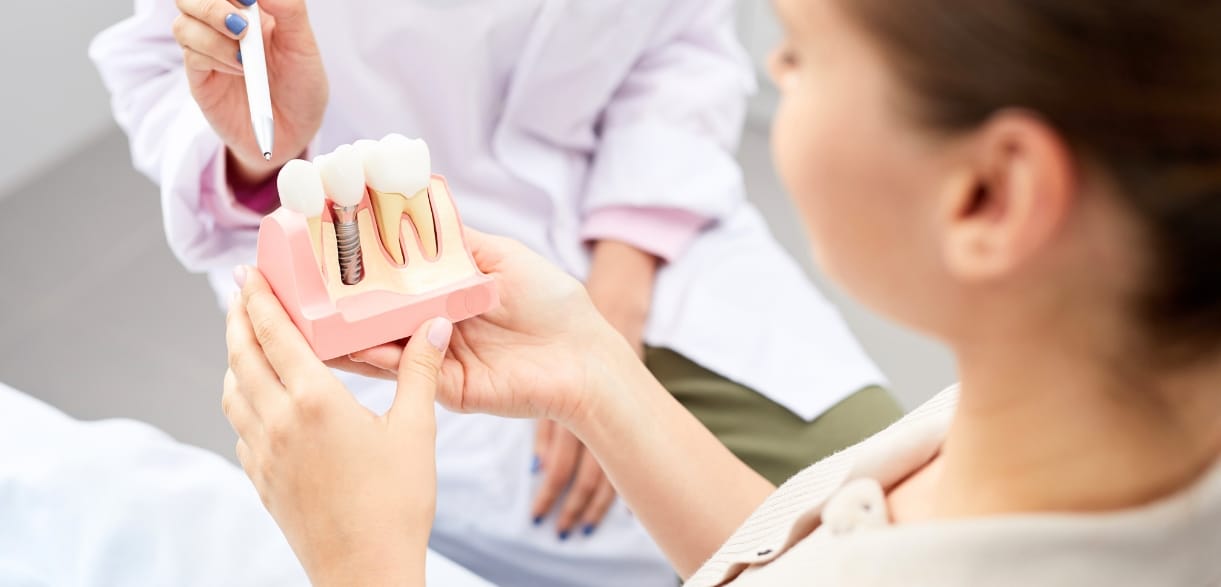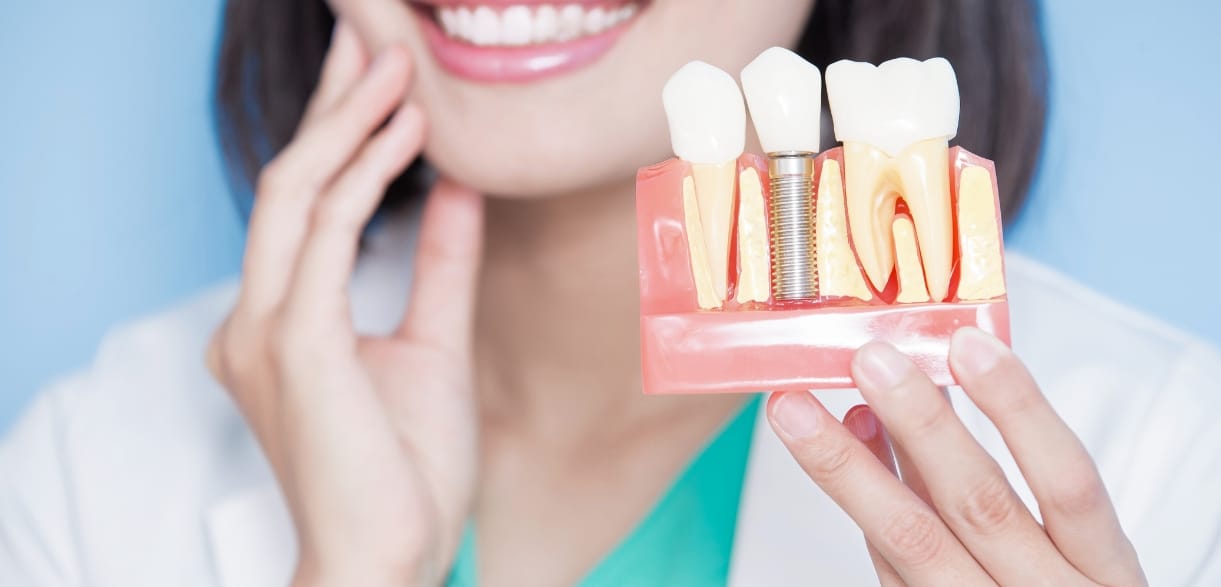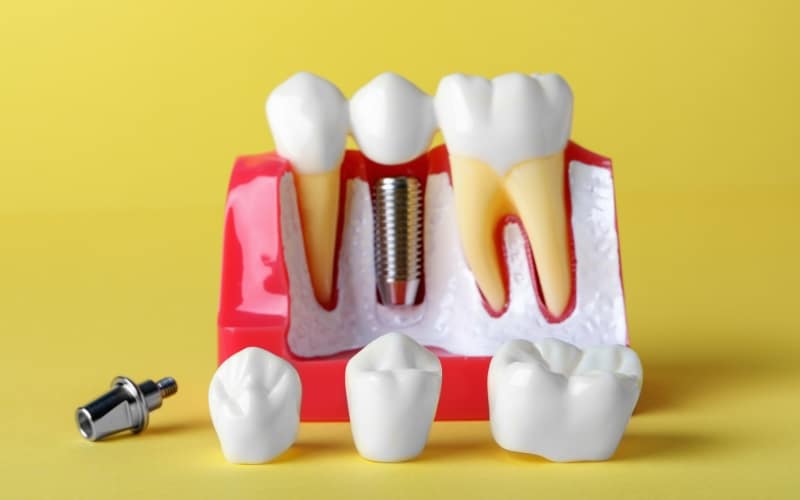27382 Calle Arroyo, San Juan Capistrano, CA, 92675

Introduction to Dental Implant Surgery
Dental implant surgery is a sophisticated dental procedure aimed at replacing missing teeth. It involves surgically embedding titanium implants into the jawbone, serving as sturdy foundations for artificial teeth.
The process begins with a comprehensive examination and treatment planning. During the surgery, the dentist drills into the jawbone places the implant, and allows it to fuse with the bone through osseointegration.
After healing, prosthetic teeth are affixed to the implants, restoring functionality and aesthetics.
Dental implant surgery is renowned for its durability, natural feel, and ability to enhance oral health, providing a long-term solution for individuals with missing teeth.
Importance of Proper Nutrition After Surgery
Proper nutrition after surgery is crucial for optimal recovery and healing. Adequate nutrients support the body’s repair processes, boost the immune system, and minimize the risk of complications.
Protein is essential for tissue repair, while vitamins and minerals play critical roles in immune function and overall well-being.
Proper nutrition accelerates wound healing, reduces inflammation, and enhances energy levels. Maintaining hydration is vital to prevent complications like infections. Certain surgeries may temporarily affect appetite or nutrient absorption, making a well-balanced diet even more critical.
Overall, post-surgery nutrition promotes a quicker and smoother recovery, ensuring the body receives the necessary elements to rebuild and regain strength.
Foods to Avoid Immediately After Surgery
After surgery, it’s essential to avoid certain foods that can hinder the healing process or cause discomfort. Here are some foods to avoid immediately after surgery:
1. Spicy Foods: Spices can irritate the digestive system and may cause discomfort.
2. Hard or Crunchy Foods: Foods like chips, nuts, and raw vegetables can be challenging to chew and may risk damaging sensitive areas.
3. Acidic Foods: Citrus fruits and acidic foods may irritate the digestive tract and incision sites.
4. High-Fat Foods: Greasy or fried foods can be challenging to digest and may lead to nausea or indigestion.
5. Alcohol: It can interfere with medications, dehydrate the body, and slow down the healing process.
6. Excessive Caffeine: While a moderate amount may be acceptable, excessive caffeine can lead to dehydration, which is not ideal during recovery.
7. Sugary Foods: Excessive sugar intake may contribute to inflammation and hinder the body’s healing ability.
8. Carbonated Beverages: These can cause gas and bloating, which may be uncomfortable, especially after abdominal surgery.
9. Tough Meats: Hard-to-chew meats can strain the jaw and cause discomfort, especially after oral or facial surgeries.
Always follow the specific dietary instructions your healthcare provider provides, as individual needs may vary based on the type of surgery and personal health considerations. It’s crucial to prioritize a balanced and easily digestible diet to support the body’s healing process.
Soft and Nutritious Foods to Eat During Recovery
During recovery from surgery, choosing soft and nutritious foods that are easy to chew and gentle on the digestive system is essential. Here are some options:
1. Smoothies: Blend fruits, yogurt, and milk for a nutrient-packed, easy-to-consume option.
2. Soups: Choose broth-based soups with vegetables, lean protein, soft noodles, or rice for added substance.
3. Mashed Potatoes: Creamy mashed potatoes are a soft and comforting choice that can be easily flavored for variety.
4. Yogurt: Opt for plain, low-fat yogurt with soft fruits or a drizzle of honey for added flavor.
5. Applesauce: Unsweetened applesauce is smooth and easy to eat, providing vitamins and fiber.
6. Oatmeal: Cooked oatmeal can be softened with milk and topped with berries or bananas for added nutrition.
7. Cottage Cheese: A soft, protein-rich option with soft fruits or honey.
8. Avocado: Soft and nutrient-dense, avocados can be mashed and spread on toast or incorporated into smoothies.
9. Scrambled Eggs: Soft scrambled eggs are a good source of protein and can be easily customized with vegetables or cheese.
10. Pudding: Choose low-sugar or sugar-free pudding for a creamy and indulgent treat.
11. Hummus: A smooth dip paired with soft pita bread or crackers.
12. Nut Butter: Peanut butter or almond butter on soft bread or crackers provides healthy fats and protein.
Remember to stay hydrated by drinking plenty of water throughout the recovery period. Additionally, consult with your healthcare provider for specific dietary recommendations based on your individual needs and the type of surgery you’ve undergone.
Tips for Eating Comfortably with Dental Implants
Eating comfortably with dental implants requires adjustments as you adapt to the new prosthetic teeth. Here are tips to make the process more comfortable:
1. Start with Soft Foods: In the initial days after dental implants, stick to soft foods like mashed potatoes, soups, yogurt, and smoothies. Gradually introduce solid foods as you become accustomed to chewing with the implants.
2. Chew Slowly and carefully: Take your time chewing, especially with new or unfamiliar foods. Chew slowly and evenly on both sides to distribute pressure evenly.
3. Cut Food into Small Pieces: To reduce the stress on your implants and make chewing easier, cut your food into smaller, bite-sized pieces.
4. Avoid Very Hard or Sticky Foods: Steer clear of extremely hard or sticky foods, as they can strain or damage the implants. This includes ice, hard candies, and certain types of nuts.
5. Use the Right Utensils: Use gentle utensils on your dental implants. Avoid biting directly into complex objects; cut food into manageable pieces.
6. Maintain Good Oral Hygiene: Clean your mouth to prevent complications. Brush your teeth, gums, and tongue regularly, and consider using a soft-bristle toothbrush to avoid unnecessary pressure on the implants.
7. Stay Hydrated: Drinking water helps keep your mouth moist and aids in the overall comfort of your dental implants. It also helps with the removal of food particles.
8. Avoid Extreme Temperatures: Be cautious with hot or cold foods and beverages, as extreme temperatures can cause discomfort. Gradually introduce these items to assess your tolerance.
9. Follow Post-Surgery Guidelines: If you’ve recently had implant surgery, adhere to the post-operative care instructions provided by your dentist. This may include dietary restrictions and specific hygiene practices.
10. Regular Dental Check-ups: Schedule regular check-ups with your dentist to ensure your dental implants are in good condition and functioning correctly. Early detection of any issues can prevent complications.
Always consult your dentist for personalized advice based on your specific dental implant procedure and individual needs.
In conclusion, achieving comfort while eating with dental implants requires gradually transitioning to solid foods, mindful chewing, and proper oral hygiene. Individuals should opt for soft, nutritious options and follow post-operative guidelines to ensure a smooth recovery.
For residents in San Juan seeking expert dental implant surgery, Ortega Cottage Dentistry is a reliable and dedicated provider. Their commitment to patient well-being and personalized care makes them a trusted choice for enhancing oral health and regaining a natural, functional smile.
Trust in Ortega Cottage Dentistry for comprehensive dental implant solutions in San Juan.





